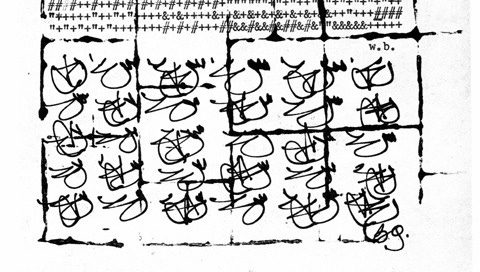Yes; I sort of came upon my theme/s during graduate school, but the pursuit was never academic; it was existential.
(I am as academic as Nietzsche was. I am the Strait of Messina.)
I also realise it’s difficult to pin down what my themes are. I’m not sure why that is, but I find it interesting. I can cursorily call them “perception, mimesis and power”, but those feel like skullcaps on an iceberg.
I’ve been reprimanded for obscurity and apophatism. At the same time, I’m telling you everything. Having something to say doesn’t mean it is easy to pick up. That it is not easy to say doesn’t make it not worth saying, or at least essaying, either.
How you iterate upon your themes also matters. Desire-paths and their dependencies form. That is what it means to have a style. A style is not about the ‘topics’ you pursue, but along what lines you fold and stretch and crease things. That’s the shape of writing; fatal, almost cheiromantic.
Not every writer is a stylist. A stylist is a type of writer, a fetished and undervalued subspecies.
I am, unfortunately, a stylist. I understand very well that people enjoy stylists, but that no one wants them, really. The signature is all too spoorlike. It’s like keeping an exotic: high-maintenance, fragrant, spectacularly beautiful, and who has time for such things anymore. Your writers should inform you, not vice versa.
The stylist is all signal in a very taxing way: to themselves and others. People like a bit more fat in their ‘public intellectuals.’ You need to have ‘a topic’; some ‘thing’ to write about; some idée fixe —an appendage or aboutness readers can hold on to and identify you with.
Being the Strait of Messina is lonely. I am a lonely writer, though I in fact allow for an unnarrow readership. You’re all quite different amongst yourselves, and I value that you stay that way. It means I’m not an echochamber.
[The echochamber is a style of writing. (It is not, however, a type of stylist.)]
Attachment to "ideas" and to "topics" —attachment to opinions— seems to push in the direction of interlocutorial homogenisation; which is the death of a thinker, if not of a writer.
So it appears I am not dead yet. If you recall, the Strait of Messina is Scylla and Charibdis. If you recall a little further, you’ll remember that both Scylla and Charibdis started out as nymphs: the daughters of Typhon and Echidna, and of Poseidon and Gea, respectively.
More or less also my themes.
The Bride Stripped will be back over the weekend. See you at vibegala.
As reward and punishment, you get more Brion Gysin tonight. Rub Out The Word from The Third Mind by Brion Gysin and William Burroughs, 1965.





Ah, this the stuff.